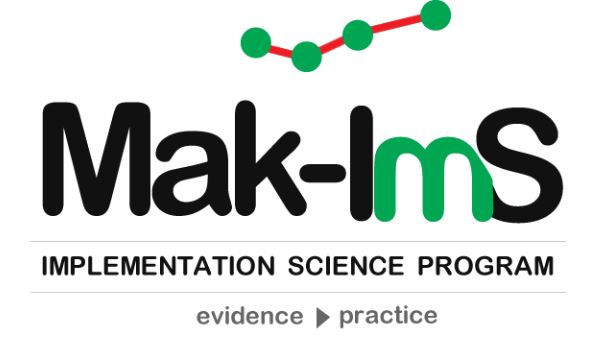The current ImS program is focused on HIV/AIDS. This training program is a collaboration among the following institutions: Makerere University College of Health Sciences and the University of California San Francisco in the USA and Ministry of Health (Uganda). This National Institutes of Health (NIH) funded program started in May 2015 and supports post graduate trainees with demonstrated interest in developing generalizable approaches which enhance the uptake of evidence-based healthcare practices to optimize outcomes along the continuum of HIV care. The training experiences range from seminars to short courses, to degree and non-degree programs of one to two years duration including an online UCSF Implementation science certificate program. The program supports masters’ students with a training background in; Clinical medicine, public health, Economics, Information Technology and Social sciences. All our trainees are selected through a competitive process. Currently, the program supports twelve trainees; one PhD candidate, six masters’ students and five non-degree trainees on the UCSF implementation science certificate program.
The trainees are mentored by a team of senior faculty and researchers from Makerere University and the University of California San Francisco (UCSF) who are experts in the fields of HIV research, Implementation science research, health economics and health systems management, social and medical anthropology, epidemiology and biostatistics, and evaluation of community-based interventions.
Programs
Journal Clubs
These are run every last Thursday of the month. A presentation is made on any ImS research related topic and the last 15 minutes are for open discussions, questions and answers.
Short courses
Short courses are also organized on implementation science pillars such as; Evidence-Practice Gap, Behavioral Change, Biostatistics and Qualitative methods, Community Engagement
PhD and masters Scholarships
The targeted trainees are those with backgrounds in Medicine, Behavioral Sciences, and Social Sciences, Economics & Information Technology
Non-degree training
Each year, the program supports five trainees to enroll for a one-year UCSF online ImS program.





